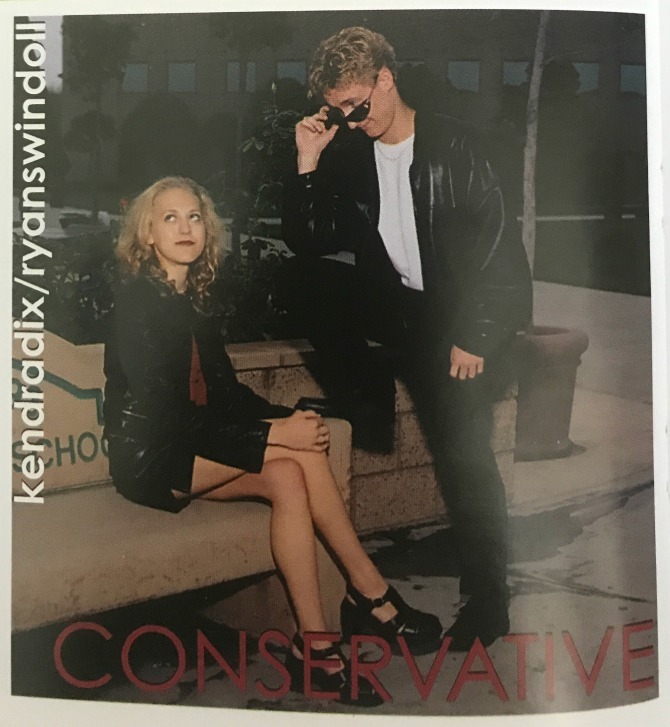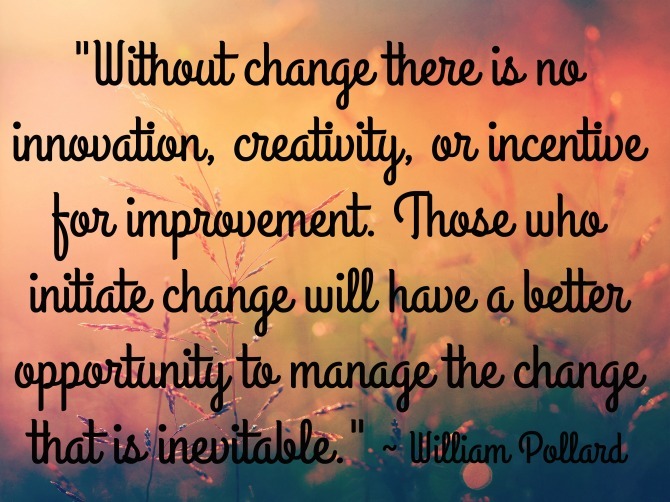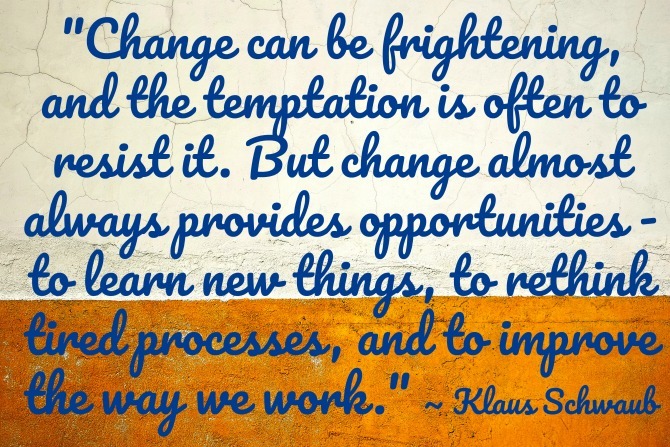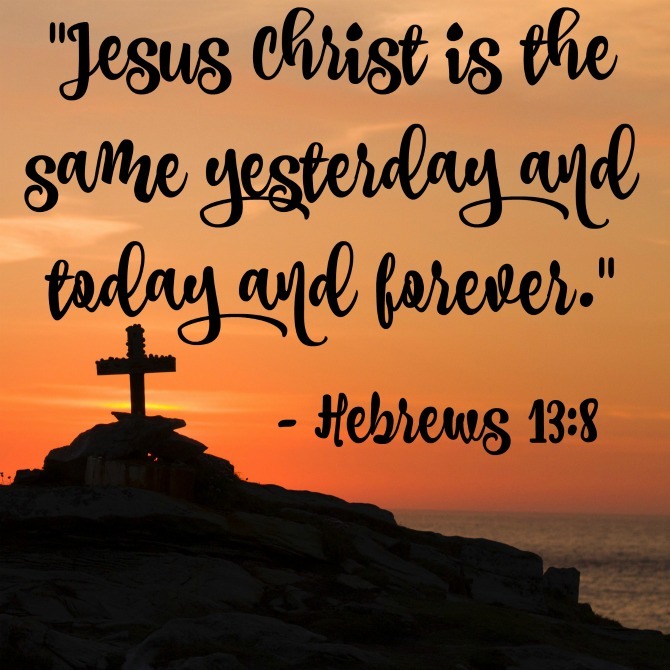I was voted Most Conservative by my high school senior class. My staunchly Republican grandfather assumed this was a commentary on my political views, and he’d never been so proud. While I was indeed an outspoken Republican, the “Most Conservative” nomination likely had more to do with my aversion to swearing, alcohol, and hallway make-out sessions than my politics. Little Miss Goody Two-Shoes, that was me! (Please note: the yearbook photo below was meant to be ironic. Several classmates who didn’t know me well saw this picture and began calling me all sorts of nasty names—ha!)

What my teenage peers may not have realized at the time was that the Conservative label was relevant beyond just my politics or ethics. The dictionary defines conservative as “cautious about change”, and this described me to a T. From an early age I’d distrusted and resisted change: I would settle into a particular perspective or a method of doing things, and I couldn’t comprehend any other possible way. I believe this was an early extension of my Perfectionism: once I’d deemed a certain practice or idea “perfect”, I simply didn’t have the mental bandwidth to acknowledge that I might have been wrong or misguided.
My aversion to change wasn’t just for myself; I didn’t tolerate it in those around me, either. I would become devastated when I witnessed change in a friend, acquaintance, or even a celebrity, and my default tool for reconciling their past and present selves was to label them a sellout. I couldn’t fathom how someone could undergo a genuine change for reasons other than trying to fit in. This happened with big-picture issues (like a shift in religious beliefs), and also with small ones. Here’s a real-life example of thoughts that went through my head: “how dare she (she being a best friend) stop loving Barbies! She’s either pretending not to love them now (ugh, such a poser), or she never loved them at all! I will never be like that; Barbies for life!” This sounds ridiculous to me know, but that is truly how I viewed the world—for much longer than I’d care to admit. I simply didn’t know how to let things go, and things included everything I knew to be true about myself.
I heard recently that “One of our greatest barriers to better is our tendency to defend our normal.” I am GREAT at defending my normal, even when normal no longer makes any sense. I can recall countless instances of hanging onto my personal status quo until it was threadbare and lifeless. Even when all the life had been wrung out, I would proceed to make numerous life-support attempts. Only once change was unequivocally unavoidable did I move on to a new normal, one that would become the next object of my obsessive brand of allegiance. ’Til death do us part.

What I didn’t realize when I was younger was that this staunch conservatism was holding me back. Yes, there is value in loyalty, consistency, and predictability. It’s nice to be able to know what we can expect from ourselves and others. But it’s easy for our loyalty to become misplaced; we grow stagnant—not because we fully align with past dreams or beliefs, but because we’re too afraid to admit that we don’t. At some point we are no longer being authentic, we’re just being obstinate and willfully ignorant. If we’re not careful, we can find ourselves devoted to habits, viewpoints, or life paths that are no longer serving us. And that is not a good place to be.
Without question, motherhood is the arena where I’ve become most fully aware of my reluctance to change, and how this aversion is not just a cute personality quirk, but a genuine hindrance to how I show up in the world. As every parent knows, life with kids is constantly evolving. From outfits that are outgrown within weeks, to skills that spring up overnight, kids are a veritable hotbed for change, and if we parents want to stay relevant, we’ll need to change too. As I have worked to keep up with my son, I’ve begun to shed layers of my own past self that no longer serve me. My mind and values and even my clothing preferences have changed. I’ve started to embrace a few religious and political perspectives that would have left High School Kendra clutching her pearls. And as the growth continues, I’m increasingly aware of more changes that lie ahead, of how much more work still needs to be done.
The Bible talks about the importance of moving on from a mother’s milk to solid food as we grow: milk is perfectly acceptable for an infant, but entirely inappropriate for someone who is grown. The metaphor is used to emphasize the importance of spiritual maturity, but it applies to all areas where changes must take place. Committing to change is not necessarily an indictment against our old ways/views/etc. Those old ways may have been completely suitable for a time, just as milk is suitable for an infant. But acknowledging a need for change DOES require us to see that our old ways are wrong for us right now.

This perspective doesn’t come naturally to me and my all-or-nothing thinking. In the rare instances where I submit to change, I easily fall prey to feelings of failure over my perceived “weakness” for having evolved, which I tend to see as a betrayal of my “authentic self.” I mistakenly conflate changing with quitting, and we all know that quitters never win! Conversely, I make peace with the change by reframing the past as the villain and casting shame onto previous versions of myself. This is harmful to me, and to others—because failing to have compassion for myself easily transfers to a lack of compassion for those around me. If I want to be kind and gracious to everyone else, I need to act kind to ME too; and that includes all the versions of me—past, present, and future. I’m learning how to acknowledge that old me was doing the best she could at the time.
Change may never be a strength for me, but I no longer view it as the enemy, or even a necessary evil. I’m beginning to make my peace with change, recognizing it as a healthy part of growth and a necessary component of maturity. It’s okay—great, even—to change up my routines, to relinquish old dreams, to rethink past beliefs. One helpful practice I’ve adopted on this journey is “embracing reality, denying finality.” In other words, becoming comfortable with the present (circumstances, version of myself, etc.) while holding my current reality loosely, knowing that, for better or for worse, what is and what works right now is not what will be and what will work forever.
I’m also ever-cognizant of the fact that, though the world and everything in it may change, I serve a God who remains the same, yesterday, today, and forever. He is steadfast, He is unchanging, He is reliable and dependable and my True North when life feels topsy-turvy. My understanding and experience of Him may adjust to my circumstances, but HE will remain my anchor and my rock.

[…] Evolving Thoughts on Change ~ Change is hard for me. Admitting to my attempts at becoming more comfortable with change was almost as hard! […]
[…] is probably a universal side effect of aging. Over the past few years I’ve experienced shifts in my politics, my views about the Bible and the Church, my parenting philosophies, and my own […]
[…] than we were seven years ago. It is impossible for us to remain stagnant. I am not someone who is comfortable with change. Even when those changes are positive ones, I recognize the loss that is involved—because the […]